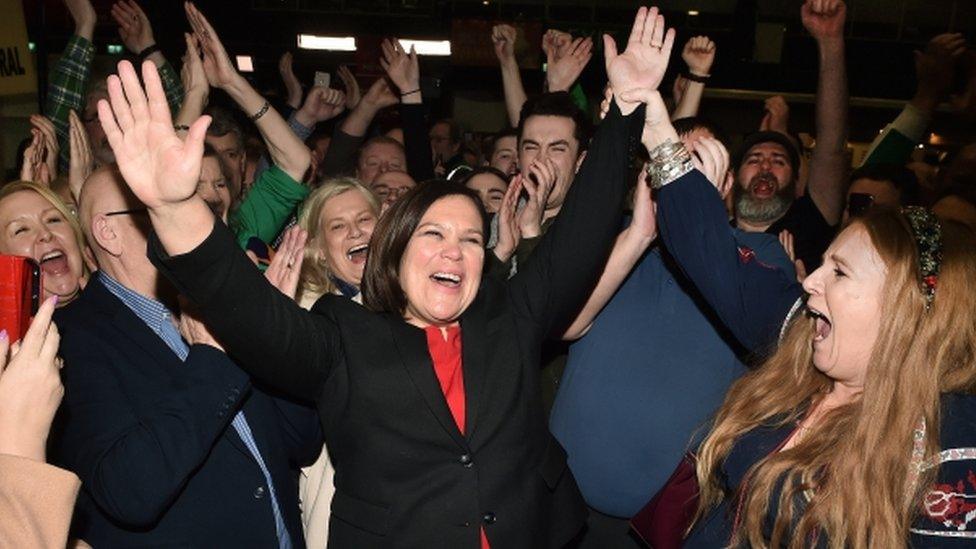Irish election: No new taoiseach as Dáil vote ends in deadlock
- Published
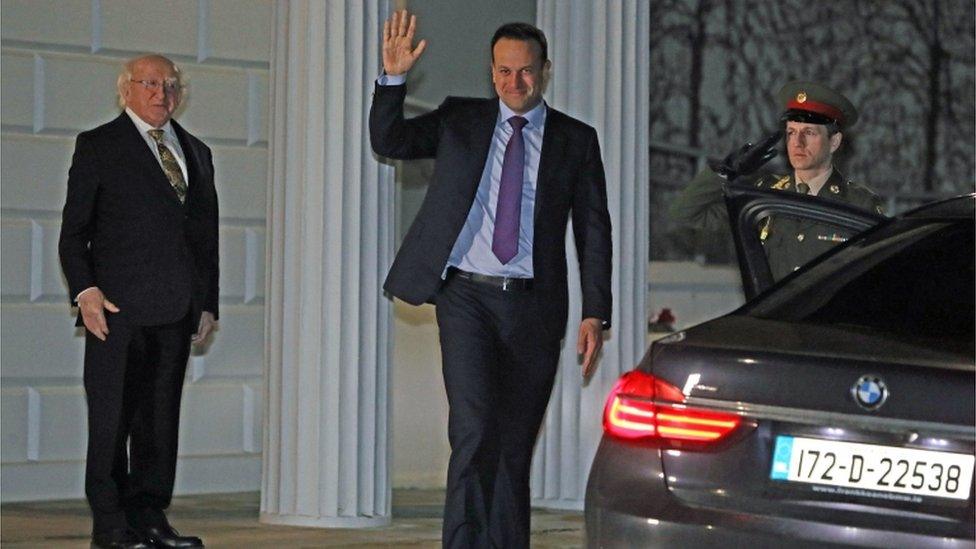
Leo Varadkar tendered his resignation as taoiseach to President Michael D Higgins on Thursday night
Leo Varadkar has offered his resignation after attempts to elect a new taoiseach (Irish prime minister) in the Dáil (Irish Parliament) ended without agreement.
There were four nominations for the post, including Mr Varadkar and Mary Lou McDonald, nominated by Sinn Féin.
Fianna Fáil leader Micheál Martin and Green Party leader Eamon Ryan were also nominated by their respective parties.
Mr Varadkar, Fine Gael's leader, will continue as caretaker taoiseach.
He and the previous government will remain in place until a new government can be formed.
With the election results failing to return a majority, voting was fractured along party lines.
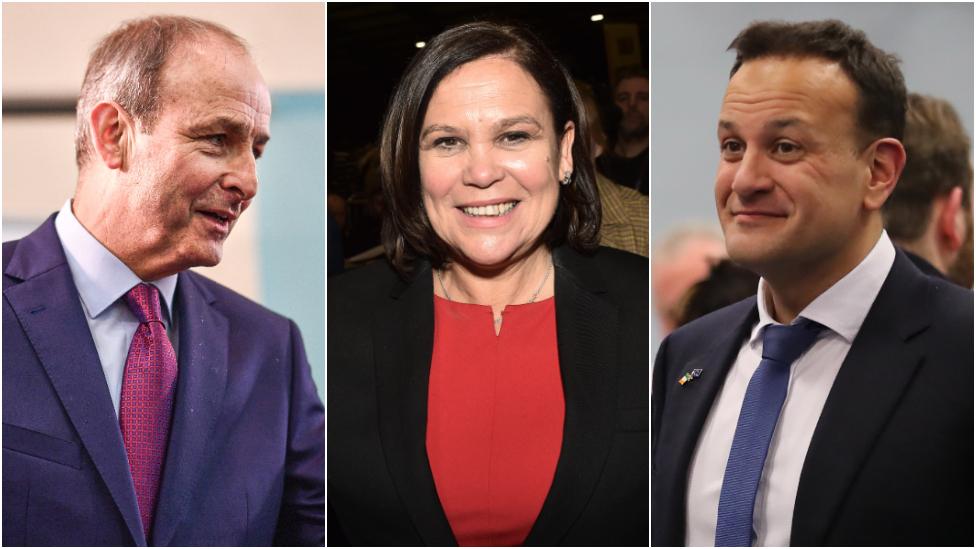
Micheál Martin (left) leads Fianna Fáil, Mary Lou McDonald is the Sinn Féin president and Leo Varadkar is the leader of Fine Gael
It took 70 days for parties to agree a government structure in 2016.
Sinn Féin president Mary Lou McDonald had the highest number of votes in her favour, with 45, but a majority would require 80.
Micheál Martin polled 41 votes, while Mr Varadkar recieved 31 votes.
The final candidate, Eamon Ryan, was left with 12 votes in his favour.
"The responsibility is now on all of us to make sure we provide good government and indeed good opposition," Mr Varadkar said.
Fianna Fáil leader Micheál Martin criticised Sinn Féin for taking aim at his party's policy on not going into government with it and said differing policies did not mean parties' support was invalidated.
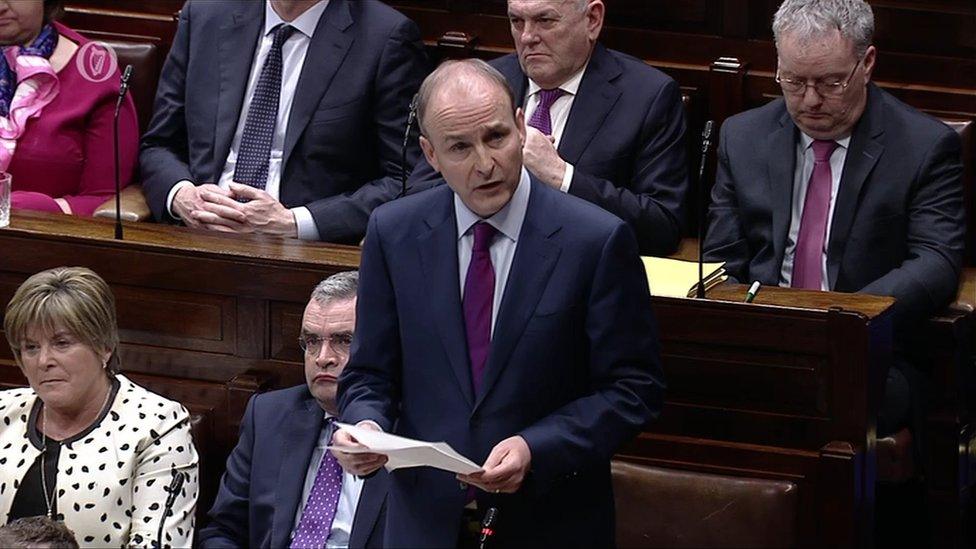
Fianna Fáil leader Micheál Martin criticised Sinn Féin's conduct in the last few weeks.
"Some parties claim that they uniquely represent the people and deny the mandates of other parties," said Mr Martin.
"We reject the idea that there is no limit to be set to the compromises that you should take.
"We believe that a new government must also show urgency in relation to Europe and Northern Ireland, as we can all see an enormous amount of work is required in relation to securing Northern Ireland's special economic status and Dublin must return to being a leader in the work of challenging sectarianism and building reconciliation."
However, Sinn Féin leader Mary Lou McDonald said this election represented a turning point and that, Fianna Fáil and Fine Gael, which have led every Irish government since the 1930s, were adverse to giving up power.
"Change also means that the old order must pass and you see, that's really what the problem is here," said Ms McDonald.
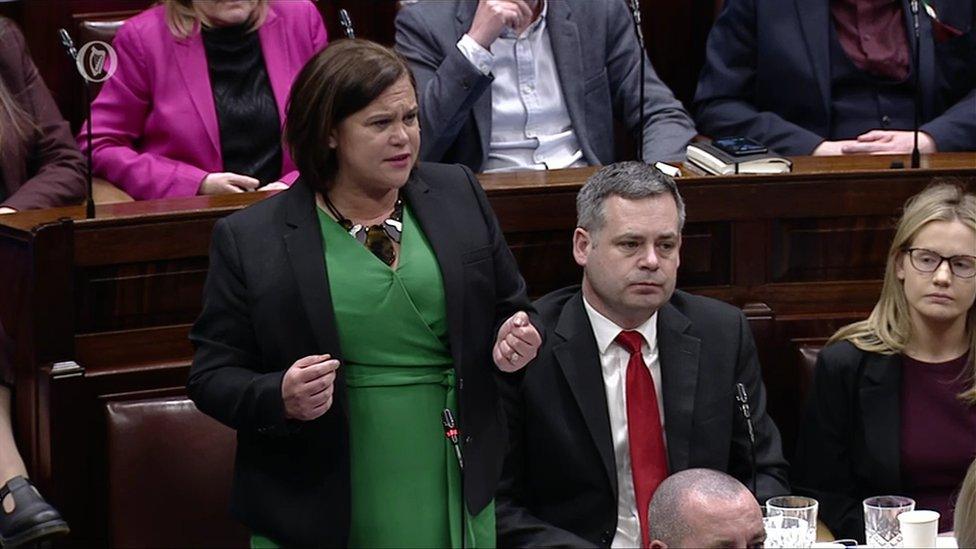
Sinn Féin President Mary Lou McDonald said a vote for her party was not a protest vote.
"Government formation is also about power and who wields it and the reality is that Fianna Fáil and Fine Gael have run the show for almost a century and they're not minded to let go."
Ms McDonald also said a vote for her party was not a "protest vote" but a vote for it to be in government.
Green Party leader Eamon Ryan said he respected the mandates that his colleagues from other parties had been given and those who voted for them.
Earlier, Fianna Fáil's Seán Ó Fearghaíl was re-elected as speaker, as the Dáil met for the first time since the general election.
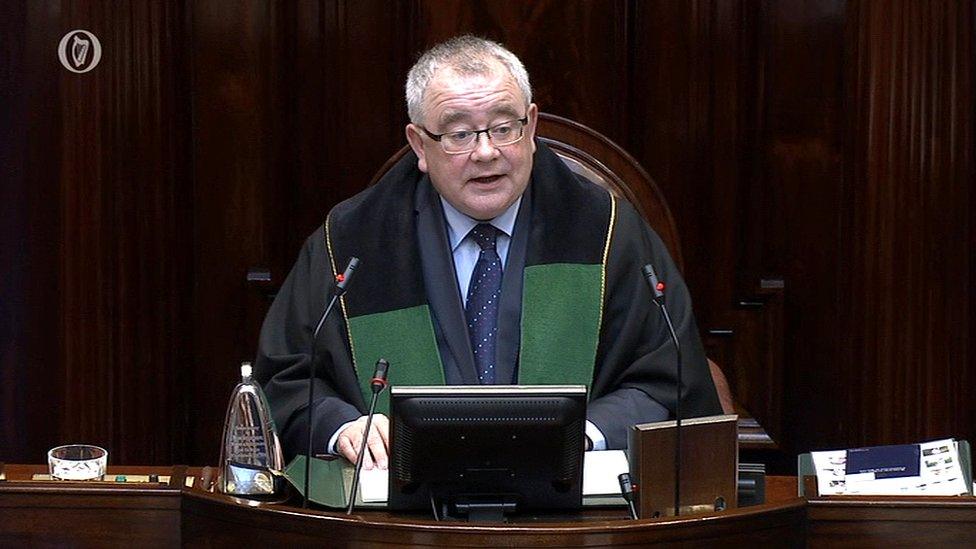
Seán Ó Fearghaíl was returned as speaker of the Dáil
His election as ceann comhairle means that both Fianna Fáil and Sinn Féin now have 37 voting TDs, while Fine Gael has 35.
Only one other candidate ran against him - independent TD Denis Naughten, who received 28 votes.
Following the failure to choose a new taoiseach, the Dáil will be suspended for about a fortnight to allow negotiations on government formation to continue.
Sinn Féin emerged from the poll on 8 February with the highest number of first preference votes and it won 37 seats, one seat fewer than Fianna Fáil, which had 38.
There were demonstrations and celebrations outside the home of the Irish parliament in the hour before the 33rd Dáil sat for the first time.
Protesters delivered messages about homelessness, healthcare, and the Middle East.
- Published19 February 2020
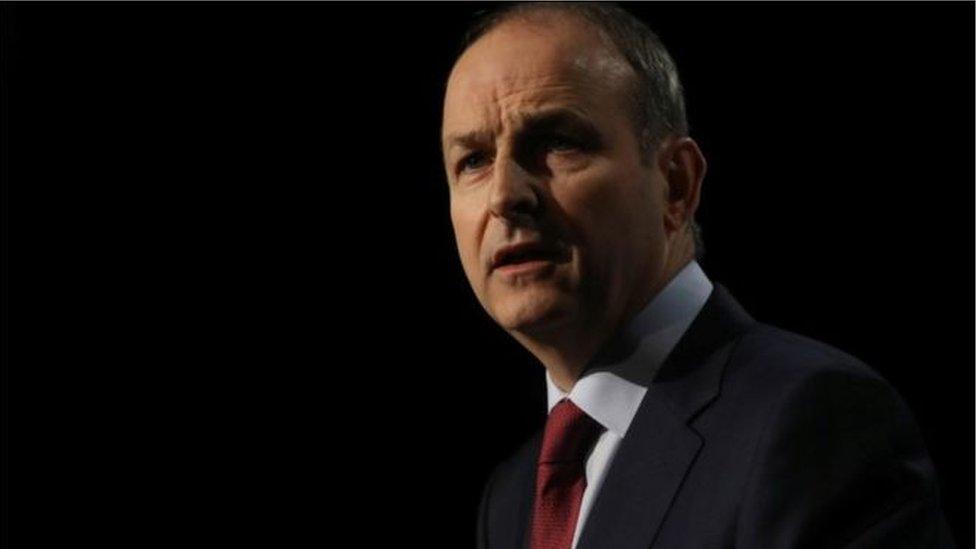
- Published14 February 2020
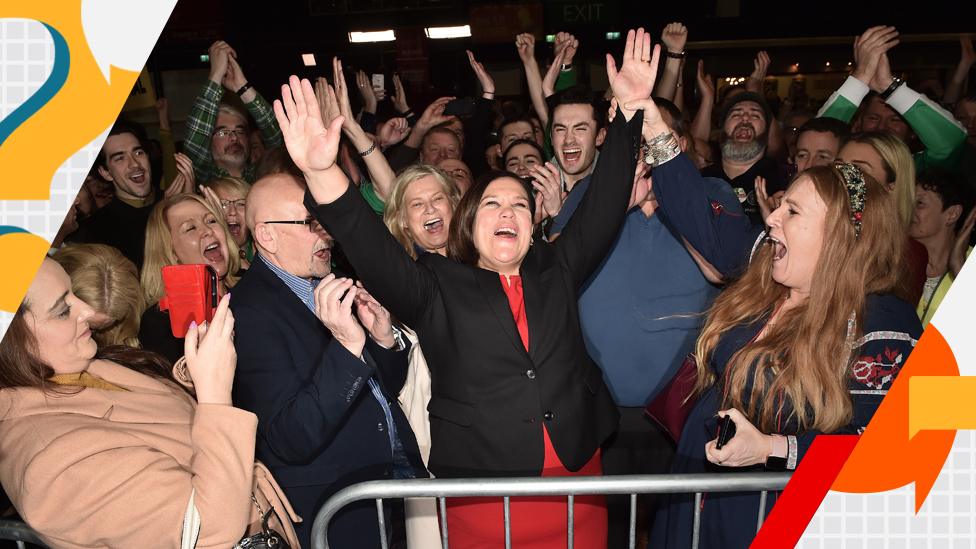
- Published11 February 2020
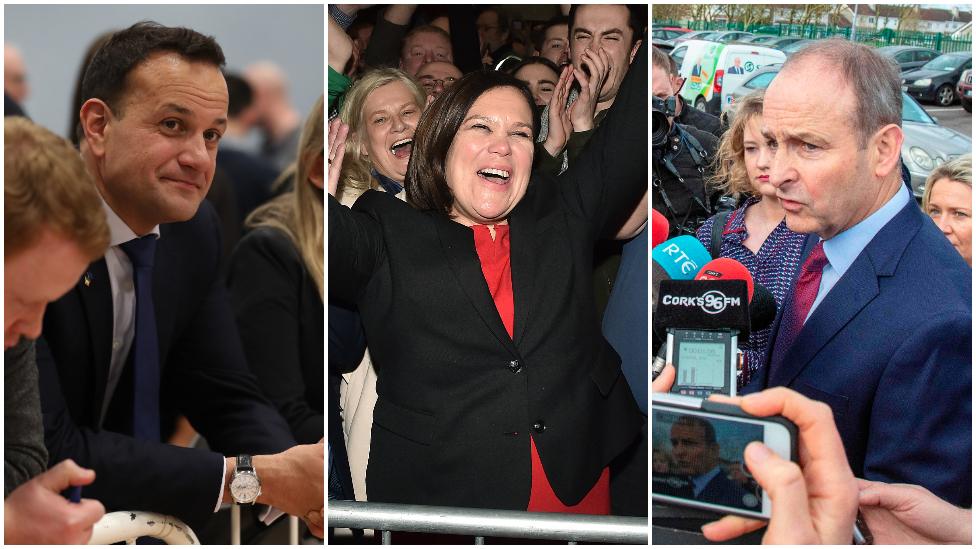
- Published10 February 2020
